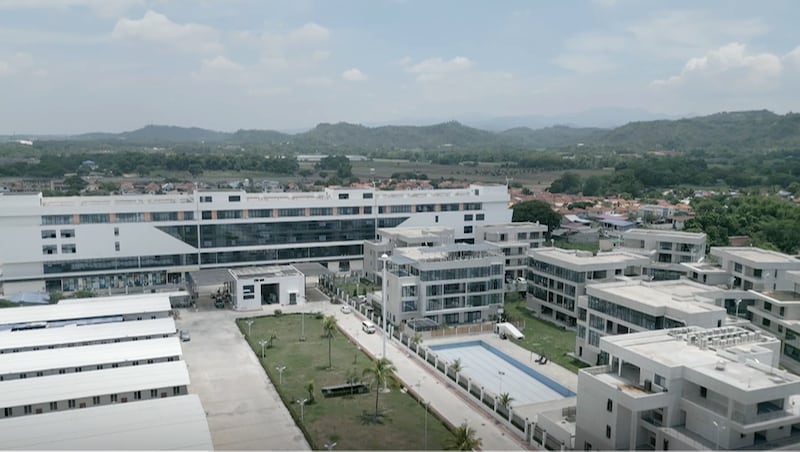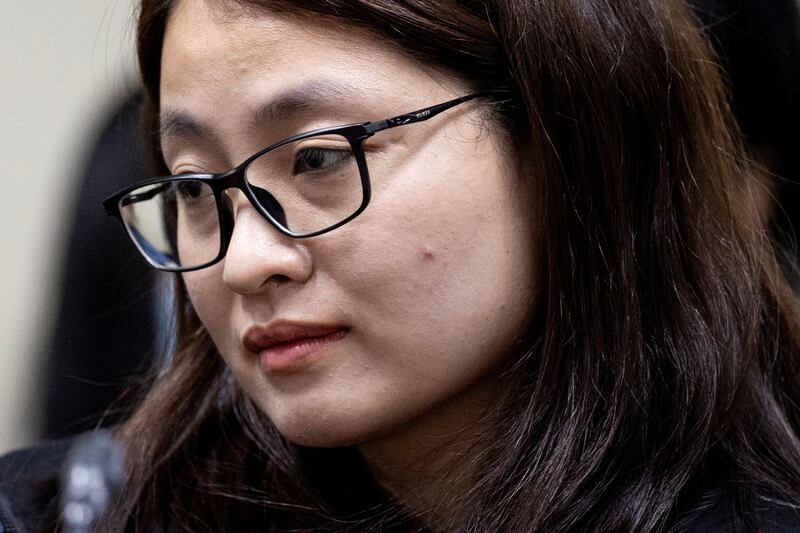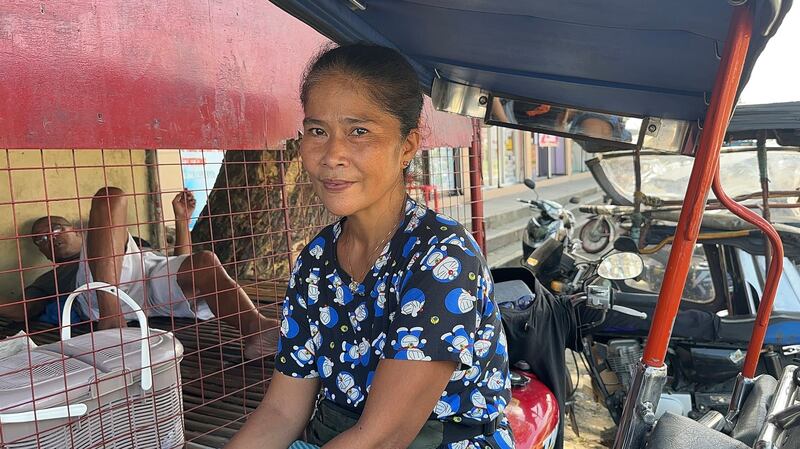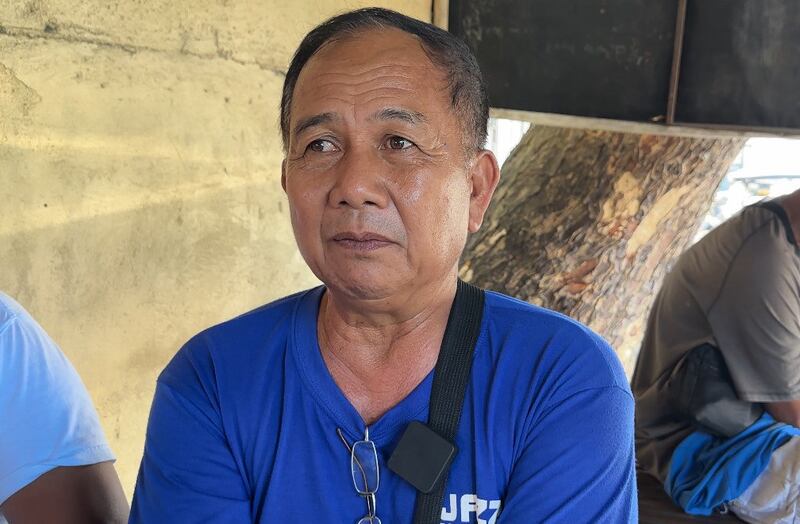The sprawling compound with high buildings and resort-like facilities contrasts starkly with the rural surroundings in Bamban, a small farming town a few hours’ drive north of Manila.
For several years, this compound symbolized the town's newfound growth propelled by China-backed investments. Locals interviewed by BenarNews mostly credited Bamban's prosperity to a young, bespectacled mayor, Alice Guo, who is now at the center of a controversy in the Philippines over her suspected role in crimes, corruption, and even espionage.
“There was really an increase in the number of Chinese nationals here when the compound started,” said 61-year-old Vladimir Lingat, a Bamban native who drives a motorcycle taxi.
“[The Chinese nationals] rarely interacted with us. Some of them were boastful, but we were just happy to have passengers and customers,” Lingat told BenarNews in an interview on Sept. 23.
Guo, the former mayor of Bamban, is in Philippine custody after being arrested and deported from Indonesia last month. She faces criminal charges of human trafficking and graft connected to the compound, which was a hub of activity during her mayorship.
In addition, Philippine officials and lawmakers have floated allegations that Guo may have also been spying for China – Manila’s main territorial rival in the hotly contested South China Sea – but Philippine authorities so far have offered no evidence to back up this suspicion.

This sleepy town in northern Tarlac province was thrust into the national spotlight earlier this year when authorities raided two Philippine offshore gaming operators (POGOs) operating inside the compound. Officials said they had received tips that crimes and human rights abuses were allegedly being committed inside the property.
In May, the Philippine Senate started its probe into alleged criminal activities involving POGOs.
Documents presented to the Senate allegedly showed that Guo had personally applied for one of the two firm's business permits.
Guo had said she once controlled half of the stakes in the company that owned the property where the two POGOs were operating. However, Guo said she had divested from the business before running for mayor of Bamban in 2022.
Guo also allegedly backed the license of the operators before and after becoming mayor, documents presented at the hearing showed.

Senators also questioned the former mayor’s alleged links to mainland China, accusing her of being a “Chinese spy” and faking her Philippine nationality – allegations she has vehemently denied.
In June, Manila’s National Bureau of Investigation said that the fingerprints of Guo matched those of Guo Hua Ping, a Chinese national who arrived in the country in July 2003. Guo Hua Ping was listed as a dependent of a Chinese citizen holding a special investor resident visa, officials said.
But Guo maintained she was a natural-born Filipino.
Guo later fled to Indonesia in July, but was caught by Indonesian authorities and deported to face the charges against her.
RELATED STORIES
[ EXPLAINED: Sabina Shoal, the newest flashpoint in the South China SeaOpens in new window ]
[ China, Philippines trade blame over 'ramming' at disputed shoalOpens in new window ]

Erlyn Villareal, a food vendor, moved to Bamban in 2011. She told BenarNews she had not heard about Alice Guo back then.
“We only knew her when she started campaigning for mayor in 2021,” Villareal, a Guo supporter, told BenarNews in an interview on Sept. 23. “All we know is that she has farm businesses here because we know friends and neighbors who are working there.”
Guo's predecessor, Jose Antonio Feliciano, endorsed her in the 2022 mayoral election. However, Feliciano admitted he was "not that close" to her and that his relationship with Guo was only "civil" and casual, according to an ABS-CBN news report.
Feliciano, who served as town mayor from 2013 until 2022, said he had endorsed Guo because he thought the town needed somebody like her, a businesswoman who knew about agriculture, the main source of livelihood for many of its residents.
‘Patronage’ at work
Some residents said they liked Guo’s election campaign promise of lifting up the town and helping the poor residents. They described Guo as “very sweet” and said she was able to forge a political alliance with the other politicians in the town.
Guo only served as mayor for two years but some locals argued that she had raised their town’s profile. They said they had received a host of financial assistance packages from Guo, and sometimes, even birthday cakes.
This is “patronage and clientelism” at work – a defining characteristic of Philippine politics, said Aries Arugay, head of the political science department at the University of the Philippines Diliman.
“Patronage politics may include establishing clientelist relationships with voters where politicians exchange favors like financial assistance for political support and electoral votes,” Arugay told BenarNews.
This is why even when there was growing evidence against Guo, the people in Bamban would rather look away, Arugay said.

BenarNews is an RFA-affiliated online news organization.
